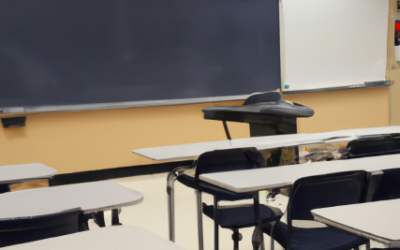Academic merit results from the successful performance of intellectual tasks by individuals. But individuals are no longer considered valid units of evaluation in Canadian universities; only collective characteristics are now considered important: gender, sexual preference, race, religion, national origin, class, etc. This change of emphasis from individual to categories of people is justified in terms of oppressor victim status: men oppress women; whites oppress non-whites; heterosexuals oppress gay, queer, and trans; Euro-Canadians oppress Canadians from elsewhere; upper and middle class oppress lower class and poor; Christians, Jews, Hindus and others oppress Muslims, and so on. Consequently, the argument goes, treating individuals as individuals means accepting the status quo of oppression and victimization.
The proposed solution to oppression and victimization in Canadian universities is implementing, enhancing, and then rewarding diversity. What is intended by this is correcting social ills and unfairness by benefiting those who belong to victim categories, those who have suffered at the hands of the white, male, Euro-Canadian, middle class, heterosexual oppressors. Members of victim categories are by policy favoured and benefited. Academic merit, as it used to be regarded, is, the argument goes, an artifact of the advantages of the oppressors, and lack of merit the disadvantage of the oppressed. Negating academic merit as a tool of oppression is the virtue of the new, “social justice” university, which supersedes the unjust and outdated academic university. Advancing diversity is thus seen by its advocates as an anti-colonial and post-colonial strategy.
A good illustration of the social justice university is the new admissions policy for the Bachelor of Education program established by the University of Manitoba Senate:
The new policy reserves 45 % of spaces in the Bachelor of Education program for students who belong to the following categories: “Indigenous, Métis or Inuit (15 %); having a [physical, mental, psychological, sensory or diagnosed learning] disability (7.5 %); LGBTTQ [lesbian, gay, bisexual, transgender/transsexual, two spirit, or queer] (7.5 %); being a racialized minority (7.5 %); or being socially disadvantaged [homeless, low levels of education, chronic low income, chronic unemployment] (7.5 %).” [1]
The purpose of this new diversity policy will reduce the dominance of privileged white women in the province’s teaching profession. [2]
It is obvious, however, that whether the diversity admissions targets are filled or not, the objective is to exclude qualified white, straight, middle class women from the education program, and from any postgraduate employment opportunities in schools. But that is okay, because they are oppressors, so no sympathy should be directed toward them. (No mention is made of men, who, unless gay, queer, or trans-, homeless, or disabled, can pretty much forget about being admitted to the University of Manitoba B. Ed. Program.)
No concern is expressed about whether these diversity admissions, once graduated, would be capable of successfully teaching the children of Manitoba. (Do not worry about them graduating with their degrees; who would dare deny them the grades to qualify them to graduate?) Should it not give pause that qualifications of admittance to the education program include “low levels of education” and “mental disability”? Would these not suggest that the admittee might not be qualified for university level academic work? Spokespersons of the social justice university would explain that this is an inappropriate question, for the work of universities is no longer academic; its work is social justice. Social justice universities fulfill their purpose and goal by admitting, passing, and graduating students from oppressed categories, and thus advancing the ultimate goal, absolute equality of result. We are told that talk about academic merit and achievement, never mind “excellence,” is talk of the oppressor, that “merit” and “achievement” are concepts used to sustain inequality and hold down the victims.
Universities across Canada have shifted to the social justice model. At McGill University, a university-wide program is directed toward admitting First Nations students and hiring First Nations professors. At issue is not an open admissions or open hiring policy, in which applications from all, including members of First Nations, are welcomed in the competition, and assessed by academic criteria. Open admissions and hiring policies have existed for many decades. (It has been a long time since Jews were restricted from entering McGill.) The new program is to selectively admit First Nations individuals due to their racial origin and current victim status. Efforts are currently in the works in at least one faculty to hire, without a competition, a First Nations professor, for the sole reason of racial origin. Just as the Manitoba program discriminates against qualified white, straight, middle class women, excluding them from eligibility for 45% of the places in the B. Ed. program, hiring without a competition a First Nations professor at McGill discriminates against all qualified members of other racial groups that might wish to apply for a professorship at McGill. Excluded would be potential applicants of Pacific Islands, and of Australian, Japanese, Chinese, Thai, Malay, South Asian, Middle Eastern, African, and European backgrounds. For social justice universities, individuals with individual characteristics and achievement, count for little; only oppressor or victim category membership is weighted seriously. Individuals are reduced to their category membership. Academic merit is disregarded.
Canadians of course share a great deal of culture with Americans. This is no less so with the evolution of the social justice university and social justice schools. A new trend is “Culturally Responsive Teaching”: As described in an article in an education journal, “Social justice must always be a motivation behind CRT research. Part of this social justice commitment must include a critique of liberalism, neutrality, objectivity, color-blindness, and meritocracy as a camouflage for the self-interest of powerful entities of society.” [3]
For social justice advocates, “neutrality, objectivity, color-blindness, and meritocracy” are tools of the oppressors, and must be replaced by advocacy and special benefits for members of victim categories. A primary tool is reverse discrimination and preferential recruitment. We might object that reverse discrimination and preferential recruitment is a racism of low expectations, assuming that people in designated categories are incapable of achievement and successful competition. As for those excluded because they are in “oppressor categories,” such as male, white, and middle class students, they are regarded by social justice advocates as collateral damage, deserving no consideration.
So too at American universities. Barnard College, according to the Report of the President’s Task Force on Diversity and Inclusion, is pressing ahead with a “diversity” initiative, involving hiring a Chief Diversity Officer (CDO), and “promoting [mandatory] educational workshops around inclusion and equity create a shared understanding of the distinctive challenges facing core constituencies, especially those from historically underrepresented groups; and focus on developing cultural competence with respect to race, ethnicity, gender, class, disability, sexuality, religion, and intersectionality. Students, faculty, administrators and staff will be expected to participate in order to create a community focus on diversity topics relevant to all at Barnard [brackets and emphasis added].” [4]
Minority members will be recruited for ten new teaching posts, so that the “demonstrated benefits” of diversity will be made available through racial hiring, sexual preference hiring, and religion based hiring. [5]
As if to confirm at the highest level the replacement of merit by diversity, the Minister of Science of the Canadian Government, Kristy Duncan, “called the Canada Excellence Research Chairs, and required competing institutions to submit diversity plans along with their applications,” according to the Globe and Mail [6]
Canadian universities must “ensure the demographics of those given the awards reflect the demographics of those academics eligible to receive them,” or else lose their Canada Research Chair funds. No mention was made of academic criteria, such as merit and excellence. The Canadian Society for Academic Freedom and Scholarship has sent a letter of protest to the President of the Social Science and Humanities Research Council.
As author of this article, I do not speak as a defender of privilege. As it happens, I am a member of an oft-despised minority, two members of my four person family have validated special needs, and two members are visible minorities. It is not for privilege I speak, but for the liberal values of individuality, equality of opportunity, and merit, and for the academic virtues of intellectual achievement and the quest for knowledge and truth. These values and virtues are disappearing in Canadian universities, in favour, not of justice, but of reduction of individuals to members of census categories, of preferential treatment for some at the cost of excluding others, and an imposed equality of result obscuring relevant and legitimate differences among individuals.
As for the oppressed of colour, sex, religion, origin, etc., I have met many students of diverse backgrounds, races, and propensities in the classes I teach. Is the idea of “merit” their enemy? Success in my classes does not depend upon non-academic characteristics, but upon academic achievement. I grade student work “blind,” without knowing the names of the authors. The result? Some students of all backgrounds do well, some do average, and some do poorly. What a surprise! Individual people are different from one another, in experience, in intellectual capability, in motivation, in self-discipline, and in creativity. How a student will do is not predictable from constructed census categories to which they are allocated. Categorizing students on non-academic criteria is unfair and counter-productive, a betrayal of academic responsibility, and a violation of human rights.
About the Author
Philip Carl Salzman received his B.A from Antioch College, and his M.A. and Ph.D. from the University of Chicago, and he is Professor of Anthropology at McGill University. He founded the Commission on Nomadic Peoples of the International Union of Anthropological and Ethnological Sciences, and its international journal, Nomadic Peoples, for which he received the IUAES Gold Award. In recent years, he has been a Senior Fellow at the University of St. Andrews, an Open Society International Scholar at the American University of Central Asia, an Erasmus Mundus International Fellow at the University of Catania, and a Visiting Professor at the University of Sydney, Australia. He has engaged in extensive ethnographic field research in Baluchistan (Iran), Gujarat and Rajasthan (India), and Sardinia (Italy) which has provided the foundation for many articles in academic journals, and for books such as The Anthropology of Real Life: Events in Human Experience (1999), Black Tents of Baluchistan (2000) (winner of the Premio PitrP–Salomone Marino Award), Understanding Culture: An Introduction of Anthropological Theory (2001), Pastoralists: Equality, Hierarchy, and the State (2004), Culture and Conflict in the Middle East (2008), Postcolonial Theory and the Arab-Israel Conflict (2008), and Thinking Anthropologically 3rd Ed, (2010). His latest book is Classic Comparative Anthropology: Studies from the Tradition (2012). In public affairs, he was a member of Middle East Strategy at Harvard (2008-2010), a member of the Board of Directors of Scholars for Peace in the Middle East (2004-2012), and is currently a member of the Academic Council of the Canadian Institute for Jewish Studies, a Fellow of the Middle East Forum (2015-), and a member of the Board of Directors of Scholars for Peace in the Middle East (2016-). He has published articles and reports in the Middle East Forum, Gatestone Institute, the Canadian Institute for Jewish Research, and the Macdonald Laurier Institute.
[1] http://www.c2cjournal.ca/2016/10/then-they-came-for-the-teachers/
[2] http://www.universityaffairs.ca/opinion/in-my-opinion/challenges-implementing-diversity-admissions-policy/
[3] http://democracyeducationjournal.org/cgi/viewcontent.cgi?article=1023&context=home See also https://www.washingtonpost.com/opinions/montgomery-countys-wrong-tack-on-culturally-diverse-education/2017/01/20/ae613906-de67-11e6-acdf-14da832ae861_story.html?utm_term=.41cb0a484906&wpisrc=nl_opinionsA&wpmm=1
[4] https://barnard.edu/about/leadership/taskforce-diversity/recommendations
[5] http://www.thecollegefix.com/post/31027/
[6] https://beta.theglobeandmail.com/news/politics/ottawa-to-pull-research-chair-funding-unless-diversity-issue-addressed-at universities/article34905004/?ref=http://www.theglobeandmail.com&utm_medium=Referrer%3A+Social+Network+%2F+Media&utm_campaign=Shared+Web+Article+Links&service=mobile
View entire PDF version here: EF01DiversityReplacesMeritSalzman_3



